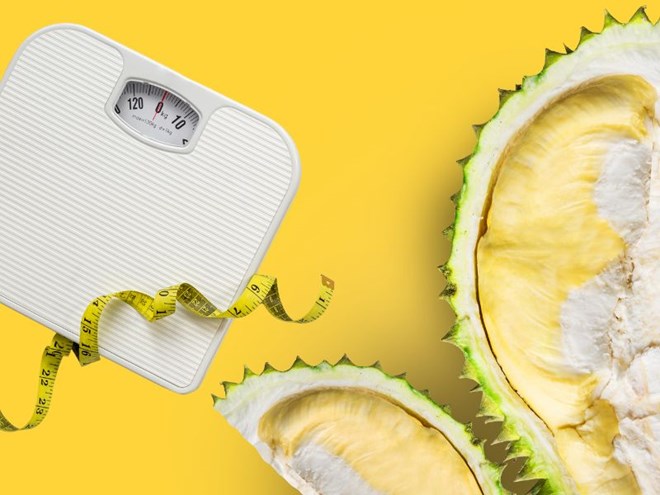
Durian is rich in minerals such as magnesium, potassium, iron, and phosphorus. At the same time, durian contains vitamin C, vitamin E, vitamin A, and vitamin B. In addition, the niacin and folic acid content in this fruit can rank first among fruits.
Durian contains more fat and protein than other fruits, which can provide calories to the body after consumption. Therefore, eating a little durian is beneficial for studying and working during the day.
Many people can eat half a fruit at a time, but this will increase energy intake and hinder weight loss, increasing the risk of obesity.
Therefore, you should consume no more than 100 grams of durian in a day, usually about 2 pieces. In order not to affect weight loss, after eating durian, you should reduce the intake of other animal foods and starches when eating to avoid excess energy.
If your digestive system is healthy, you should eat durian half an hour before meals to reduce food intake, take up some space in your stomach and promote weight loss.
On the contrary, if you have digestive problems, you should eat durian an hour after a meal and should not eat too much. People with chronic diseases such as high blood sugar, diabetes and high blood pressure should limit their intake of durian. At the same time, people with acne should limit their intake or not eat it to avoid making the condition worse.
Source: https://laodong.vn/suc-khoe/cach-an-sau-rieng-de-khong-anh-huong-den-qua-trinh-giam-can-1366832.ldo


![[Photo] Prime Ministers of Vietnam and Thailand visit the Exhibition of traditional handicraft products](https://vphoto.vietnam.vn/thumb/1200x675/vietnam/resource/IMAGE/2025/5/15/6cfcd1c23b3e4a238b7fcf93c91a65dd)



![[Photo] National Assembly Chairman Tran Thanh Man meets with Thai Prime Minister Paetongtarn Shinawatra](https://vphoto.vietnam.vn/thumb/1200x675/vietnam/resource/IMAGE/2025/5/15/e71160b1572a457395f2816d84a18b45)






















































































Comment (0)